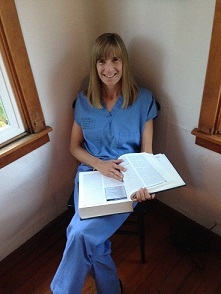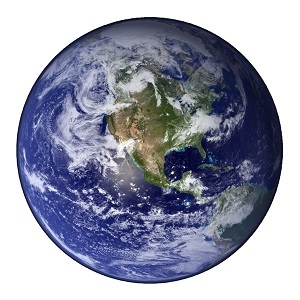I recently was the closing speaker at the 5th annual TEDxTransmedia event, held in Geneva, Switzerland. My speech was titled The Beauty of Being Alive, and the first half of that talk has already been published here at The Huffington Post. But now I wanted to share the second part, which explores the people I consider the most beautiful in the world. It also discusses the future of beauty as we progress into a more technologically advanced and digital world. Here's the condensed version of the second half of the speech:
While I have already told you about my most beautiful experience in life, I also want to tell you about the people I consider the most beautiful in the world. Given my passion for transhumanism, I'm betting you can guess who those people are. To me, scientists, researchers, and those in medicine are the most beautiful people in the world. In fact, those scientists, researchers, and health professionals who work on keeping all of us alive are all brilliant works of art themselves. They are the true artists of the universe, constantly working on a masterpiece: a healthier, stronger species. They have spent their lives working hard to make our lives longer, better, and happier.
I want to tell you about one very special and beautiful person I know very well. She is my wife. She is also a board certified, fellowship trained medical doctor. Her specialty is Obstetrics and Gynecology. When I asked her what one of her most beautiful moments in life was, she answered a single name: Mombasa. The legendary city in Kenya.
After many years of doing scientific research and finishing various graduate degrees (which also included a 4-year US medical degree) my wife took an extended trip to Mombasa to work in one of the largest, most chaotic public hospitals in Kenya. Mombasa suffers from an incredibly high rate of HIV infection, and many women my wife treated were pregnant rape victims, cervical cancer patients, and post-partum hemorrhage cases.
My wife told me the most touching experience of her two months in Mombasa was treating a 16-year-old girl who developed a dangerous infection in her uterus after suffering through a miscarriage. Unfortunately, at the time in Mombasa, there was little state money for antibiotics in this hospital. Responsibility was often on the patient to attain their own medications. But this poor girl had no family, no resources, and no money whatsoever to buy the antibiotics. She was going to die. My wife walked across the street outside the hospital, as she sometimes did for her other patients, and bought the life saving medications for the teenage girl from a private pharmacy. She was able to save and heal the girl. What makes this story even more wonderful is my wife wasn't the only doctor buying medicines for their patients. Many other foreign and African doctors were also doing it to keep their patients alive if the patients couldn't afford it.
Retelling this story, I can't help but believe that those people that work to preserve our lives and health -- in whatever capacity they do it -- are the most beautiful people on the planet.
The end of my speech is nearing. And what I want to leave you with is a glimpse of future beauty. Future beauty is synonymous with exponential technology. Future beauty is going to be so revolutionary that many of us will find it hard to even imagine now. We are here in the flesh today, but beauty will likely not be flesh in 50 or a 100 years time. Beauty will likely be something synthetic. You will be part synthetic. We will all be part synthetic. We will be cyborgs. Our bodies will be made of materials none of us have even seen before. Some of our minds may be made entirely of microprocessors. Our thoughts will be able to be deciphered by 1s and 0s. In fact, we may not even be physical anymore. We may live entirely in machines, as avatars of our former selves, or as whatever creations we want. We will be truly different beings than humans, and on our way to the singularity, the most potentially beautiful event in the history of civilization
Experts say the Earth is a few billions years old and the universe is approximately 13.6 billions years old. Such numbers are astronomical and beyond the true grasp of our current human emotional comprehension. Like you, I stand at awe of this marvel of time and life that we experience here on Earth. I stand at awe at the gargantuan miracle of the universe, and the tiny collection of star dust we all are as we watch our species evolve. But I also stand triumphant as a human being ready to change and morph into something far different than we've ever been. I stand secure and optimistic that the future will be better than the past, and the quickening direction of human evolution is an important and brilliant journey. I stand secure that we will soon overcome human death and become truly the godlike entities that our species was meant to become.
Yet, whatever happens to all of us, whatever happens to all of our lives, to be alive is to be beautiful. And the most beautiful thing we can do in the universe is to continue being alive.
The video of this 18-minute talk was recently released by TEDx on its YouTube channel.



